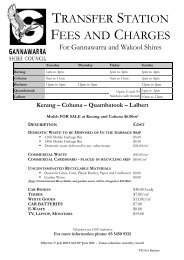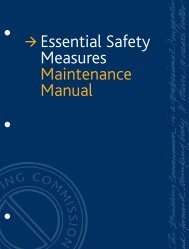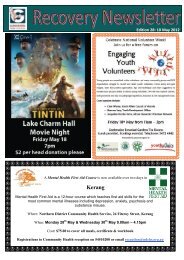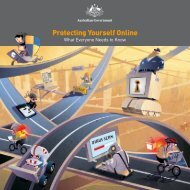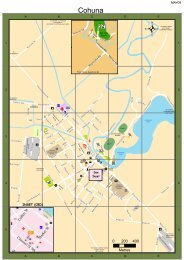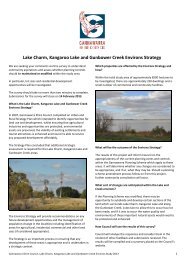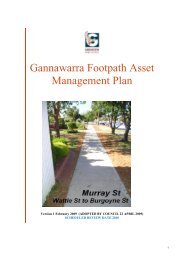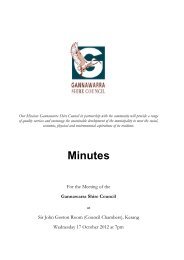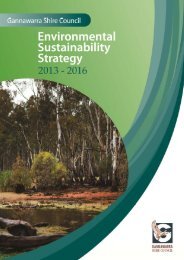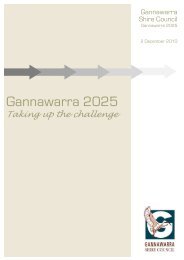Elder Abuse Policy - Gannawarra Shire Council
Elder Abuse Policy - Gannawarra Shire Council
Elder Abuse Policy - Gannawarra Shire Council
Create successful ePaper yourself
Turn your PDF publications into a flip-book with our unique Google optimized e-Paper software.
Reluctance to accept intervention<br />
If an incompetent older person is at risk and refusing help (despite efforts made to persuade) it may be<br />
necessary to contact the older person’s substituted decision maker. For example, Medical Attorney<br />
under power or Guardian under power or apply to the Victorian Civil and Administrative Tribunal to<br />
appoint a temporary guardian to consent to support services or some other intervention.<br />
If an older person is competent but refuses help, a direct care worker can support and advise about<br />
options such as how to deal with emergencies. Strategies can then be developed to help the older<br />
person understand their rights, and feel confident and comfortable to take action.<br />
In a case of self-neglect in which a competent older person chooses to live in squalor, the situation<br />
could be considered as a public health risk under the Health Act.<br />
People with dementia and their carers<br />
People with dementia (Alzheimer’s or related disorders) may be at risk of financial neglect and selfneglect/abuse<br />
that includes actions of self-injury by the individual upon themselves which are passive or<br />
active.<br />
Carers of persons with dementia may require special attention where abuse or neglect is occurring, as<br />
they can be the recipients of verbal and physical abuse.<br />
People from Culturally and Linguistically Diverse (CALD) backgrounds<br />
Cultural factors influence how all forms of abuse are viewed, and specific strategies and responses to<br />
elder abuse should address such differences. Being culturally informed and providing sensitive support<br />
is an integral component of service provision. It is important that support is provided with an<br />
understanding of the cultural background.<br />
People from different cultural backgrounds may require interpreter services. Family and friends should<br />
not be used as an interpreter (See pages 9 & 10 – With respect to age 2009).<br />
Aboriginal and Torres Strait Islander People<br />
Advice should be sought from people experienced with the particular cultural background of the family<br />
concerned, acknowledging that cultural difference may require special sensitivity in relation to neglect<br />
and abuse (See pages 7 to 9 – With respect to age 2009 for more detail about Aboriginal and Torres<br />
Strait Islander People ).<br />
Confidentiality and Privacy<br />
Where possible, discuss with the person the concerns and gain permission to refer to other agencies. It<br />
is permissible to breach confidentiality in some very limited circumstances including where the older<br />
person has consented to the disclosure of information; where the law allows or requires the disclosure<br />
of confidential information; and, in extreme circumstances, where there is a clear and imminent threat<br />
to an identifiable person of serious bodily injury or death. (See pages 36 to 38 – With respect to age<br />
2009 for more information about privacy and confidentiality)<br />
<strong>Elder</strong> <strong>Abuse</strong> Prevention Strategy – <strong>Policy</strong> Document – available through Office of Senior Victorians<br />
February 2011 page 4



